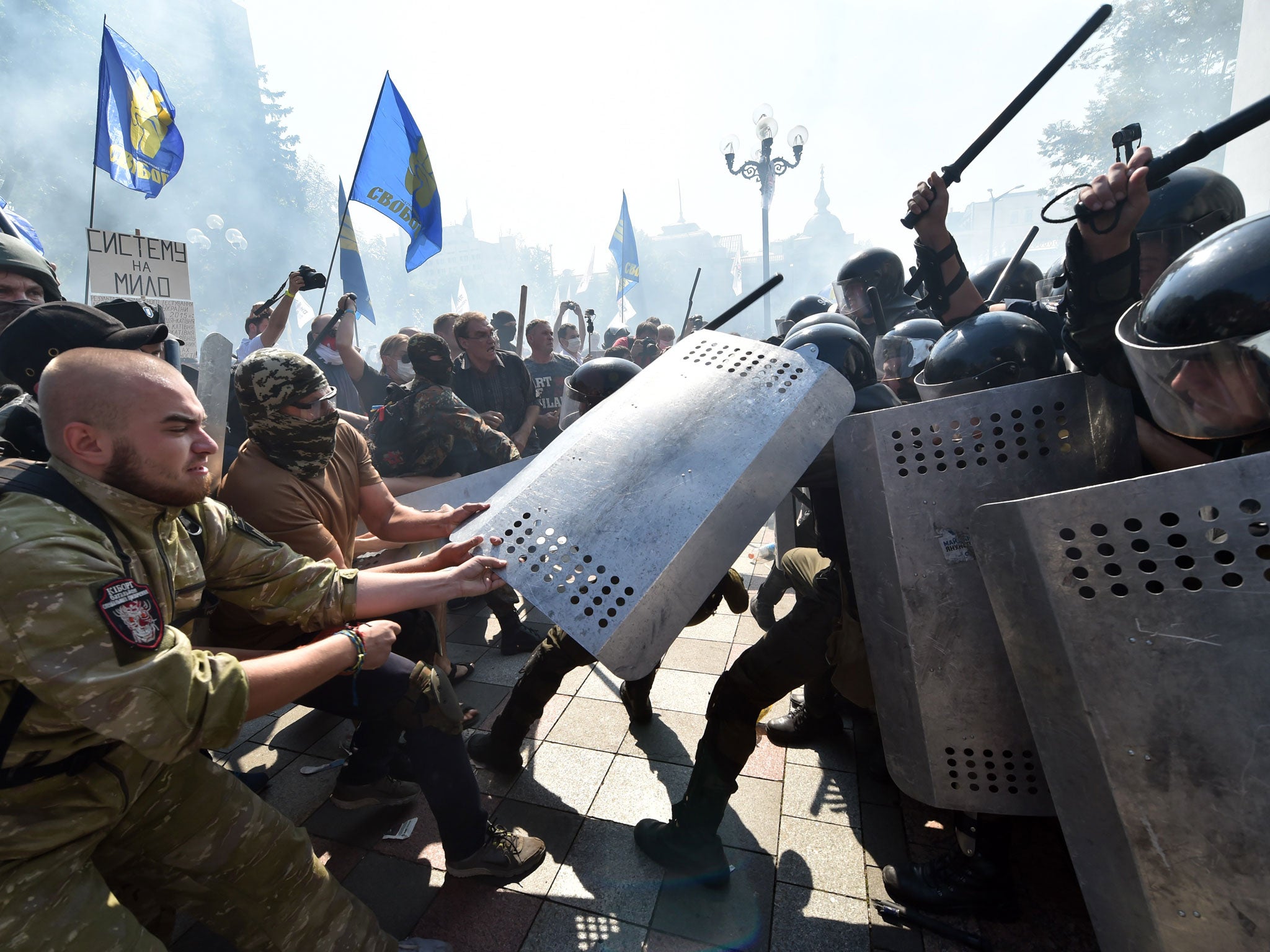The Gates of Europe, A History of Ukraine by Serhii Plokhy, book review
An unresolved question of identity hangs over these accounts of a divided country

Pity Ukraine. Warmer and more fertile than Russia, it ought to have been Russia's plumper, wealthier and less neurotic sister, for the Ukrainians are not drawn to gloire or tormented by dreams of world domination. Instead, it had a different fate – invaded, partitioned and starved out, horrifically in the 1930s, when Stalin engineered a famine to break the back of Ukrainian nationalism and turn the shell into a "model Soviet republic".
Do not sit by "the gates of Europe" if you can help it is one message of Serhii Plokhy's book. A masterly surveyor of Ukrainian history, Plokhy does not belabour the many horrors he describes; he doesn't have to, grim facts speak for themselves. Revolt follows revolt and one grim regime follows another. Some foreign rulers are benign, the Austrians above all. But the Poles were harsh, the Tsarist Russians worse and the Soviet Russians worst of all. By the 1980s, famines, deportations, mass executions and persecution had bludgeoned all sense of identity out of a great mass of Ukrainians. No wonder they have a hard time deciding what they are now, or where they belong.
Plokhy sources much of Ukraine's weakness in the late and incomplete development of a national identity. It was only in the 1840s, during the "springtime of nations", that the national movement took off, and even as it progressed, the cities were still being subjected to steady Russification. This failure to capture the urban centres was one factor behind the failure of the first independent Ukrainian state, established in 1918-1919, which collapsed in the face of Soviet and Polish invasions.
Plokhy is no Russophobe and makes clear that Poland and Romania, who ruled much of modern western Ukraine between the world wars, followed similar policies to the Russians. The Czechs, who also took a slice, were milder. Plokhy does not make a martyr out of the Ukrainians and points to the especially tragic experience of the once mighty Jewish community who ended up being butchered by everyone – Germans, Russians, Ukrainians, Romanians and Poles.
Ukraine is making a better fist of its second go at independence. It is still standing for one thing, in spite of losing a few slivers to Vladimir Putin's Russia in Crimea and in the southeast – and Crimea was only gifted to Soviet Ukraine in the 1950s. But the identity question remains unresolved and forms the backdrop to Tim Judah's very different account in In Wartime, Stories from Ukraine. Plokhy dwells mainly on the past, whereas Judah looks at the present – what Ukraine looks and feels like now. He criss-crosses the country from the Russian-speaking east to the Ukrainian-speaking west, providing a kaleidoscopic portrait of peoples who, among many other things, lack fixed and reliable memories. In one village, some of the locals insist 400 people died in the famine of the 1930s but others say it was only 30, prompting Judah to wonder why no one really knows. In Lviv, he finds a city that was once half-Polish and one-third Jewish but is now almost wholly Ukrainian.
The peoples of Ukraine seem to have moved around a lot – or been moved – and memories have got lost and become muddled and contradictory. "Heroes" in the west are seen as "fascists" in the east, and so it goes on. The voices in this book are warm and approachable. Still, it is hard to feel optimistic about Ukraine when its many communities appear to have nothing in common – except for the rich black earth on which they stand.
Subscribe to Independent Premium to bookmark this article
Want to bookmark your favourite articles and stories to read or reference later? Start your Independent Premium subscription today.

Join our commenting forum
Join thought-provoking conversations, follow other Independent readers and see their replies